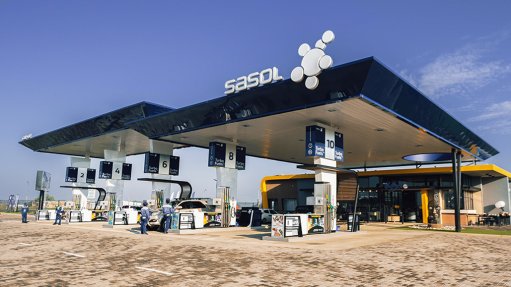The more the Internet varies, the less it changes
Hey, read this: “South Africa is in a major electric power crisis.” Do read on: “Peak power demand is exceeding reliable generation and transmission capacity. The industry is trying to overcome the crisis by installing gas turbines, creating, in turn, a diesel fuel supply crisis. The only short-term solution is to reduce consumption of both electricity and diesel, bringing energy efficiency back on the agenda. This requires a shift of focus to a cooperative environment between energy providers and consumers, away from the dominant competition characteristic of the worldwide movement to deregulate the electric power industry . . . the crisis coincides with an emerging world oil supply crisis.” Ya dah ya dah.
Oh, sorry. Did you follow all this? Well, apart from my changing ‘US’ to ‘South Africa’ and ‘gas’ to ‘diesel’, the above text comes from the magazine Electric Power, Natural Gas and Oil and was written by Brian J Fleay. It was published on January 10, 2001. This is a casual 14 years ago and I hope this example illustrates a phenomenon that has become quite evident – when people have little to write, they write about the electricity supply. Not that I suggest that Fleay’s bit above was not relevant in 2001 – but repeating it on a daily basis, as happens in South Africa, has become trite and boring.
Also, it has become a problem. The nature of the problem is that, if you repeat endless stories of how disaster will strike in the form of, say, bird flu, climate change, melting ice caps and now electricity cataclysm, the effect wears off. It is no longer the matter of a prophet not being known in his own country; it has become a matter of too many prophets preaching at the same time, resulting in boredom.
Further, many of the prophets are plain stupid. There are many out there who are well qualified to discuss electricity matters. Some are professors and some just very clever. What they have to say is valid and interesting, but, unfortunately, gets lost in the static noise generated by those who know not that they know not and nonetheless write about electricity and the crises associated with it.
Those in the latter group are incredibly arrogant in their written pronouncements – they make assertions that are sweepingly incorrect and list demands which are just plain stupid. They believe that iron smelters can run on wind turbine power and solar panels and that the only reason that the supply authorities do not proceed along this path is that there is a sinister conspiracy involving Eskom, the Association of Municipal Electricity Utilities, provincial governments, coal miners, nuclear engineers, myself and my dog Tommy, all of whom do not want the crisis to be solved owing to reasons of self-interest.
I recently surveyed three daily and one weekly newspapers to see how many articles or letters about electricity supply were written by persons who had the background and experience to write them. The results were: a total of 12 articles and two letters. Two of the texts by qualified professors. One letter by a qualified engineer. Two texts by environmentalists who made fundamental mistakes – confusing kV with kVA and assuming that gas turbines run on gas and not diesel. One column by the wife of a wine farmer. Three articles by journalists who made so many mistakes as to be embarrassing (for example, ‘Palmiet pumped-storage scheme’ becomes ‘Palmet storage pumping station’ and ‘you need diesel to pump water’ and ‘wet coal can be compensated by load-shedding’).
There was a letter, totally green and scaringly funny, by an ex-Table Mountain tour guide. Two letters of no relevance at all. The matter is not that the incompetent write – everybody can write – the matter is that a whole lot of people, having nothing to say, write about electrical supply. Our communication has sunk to the level that, instead of trying to write something relevant, a bunch of know-nots hang their hats on the very complex topic of electricity and scribe their perceived words of wisdom to show how much they care or know when, in fact, electrically, they care little but to criticise and know less. Really. Boring. Wish they would not.
Comments
Press Office
Announcements
What's On
Subscribe to improve your user experience...
Option 1 (equivalent of R125 a month):
Receive a weekly copy of Creamer Media's Engineering News & Mining Weekly magazine
(print copy for those in South Africa and e-magazine for those outside of South Africa)
Receive daily email newsletters
Access to full search results
Access archive of magazine back copies
Access to Projects in Progress
Access to ONE Research Report of your choice in PDF format
Option 2 (equivalent of R375 a month):
All benefits from Option 1
PLUS
Access to Creamer Media's Research Channel Africa for ALL Research Reports, in PDF format, on various industrial and mining sectors
including Electricity; Water; Energy Transition; Hydrogen; Roads, Rail and Ports; Coal; Gold; Platinum; Battery Metals; etc.
Already a subscriber?
Forgotten your password?
Receive weekly copy of Creamer Media's Engineering News & Mining Weekly magazine (print copy for those in South Africa and e-magazine for those outside of South Africa)
➕
Recieve daily email newsletters
➕
Access to full search results
➕
Access archive of magazine back copies
➕
Access to Projects in Progress
➕
Access to ONE Research Report of your choice in PDF format
RESEARCH CHANNEL AFRICA
R4500 (equivalent of R375 a month)
SUBSCRIBEAll benefits from Option 1
➕
Access to Creamer Media's Research Channel Africa for ALL Research Reports on various industrial and mining sectors, in PDF format, including on:
Electricity
➕
Water
➕
Energy Transition
➕
Hydrogen
➕
Roads, Rail and Ports
➕
Coal
➕
Gold
➕
Platinum
➕
Battery Metals
➕
etc.
Receive all benefits from Option 1 or Option 2 delivered to numerous people at your company
➕
Multiple User names and Passwords for simultaneous log-ins
➕
Intranet integration access to all in your organisation


















